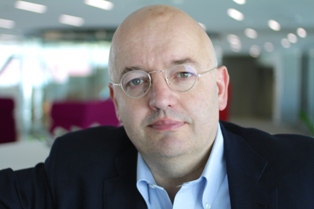 Interview with Peter Bakker, President, World Business Council for Sustainable Development
Interview with Peter Bakker, President, World Business Council for Sustainable Development
SLoCaT: Transport related GHG emissions keep rising. What holds back more effective action that can change the trend and reduce transport related GHG emissions in the short and medium term?
The main reason for the growing emissions from transport are the ever growing middle class of consumers who seek access to mobility and their consumption continues to grow demand for transport services. Yet a lot of the world’s population has poor access to basic services like sanitation, energy and mobility which needs to be corrected so that these people get the necessary access to employment, health and education. In the absence of any other action this will create an upward pressure on emissions. Mobility is a complex system with individuals’ decisions impacting the overall result. It is often thought that technology will solve the issues- and that will certainly contribute – but it will not be resolved by one solution or one player. We need collaboration between all the stakeholders; the authorities, the citizens and business. We need to rethink cities, infrastructures in an integrated way. We need to think about more sustainable transport choices. For this to be effective there is an urgent need to build trust between all these parties so that they can work together to take action to make substantial change.
SLoCaT: Can the Climate Summit initiated by SG Ban Ki-moon help advance work on Transport and Climate Change?
Certainly. This is an opportunity for government and business to exchange the ideas that can make a difference and to commit to working together to make these a reality. It is not sufficient to have big ideas from the different contributors; we need strong leadership to remove the barriers; we need commitment from all the stakeholders to make this happen; we need a way for players to come together that helps build trust in such initiatives as C20-C30-C40
SLoCaT: How can the different stakeholders present in the Climate Summit, business sector, government leaders and civil society,contribute to scale up the impact of the Climate Summit on transport and climate change?
Collaboration, collaboration and collaboration ! All the different stakeholders need to work together – without this willingness to rise to the challenge together it will be difficult to achieve scale as each has their own role to play, but each depends on the others to make it happen.
SLoCaT: What is your personal engagement to work on Transport and Climate Change?
As well as being professionally engaged through the work of the WBCSD my personal transport choices are totally consistent with the changes we need to make – I drive a fully electric car (a BMW i3) or, when possible, I use my eBike.